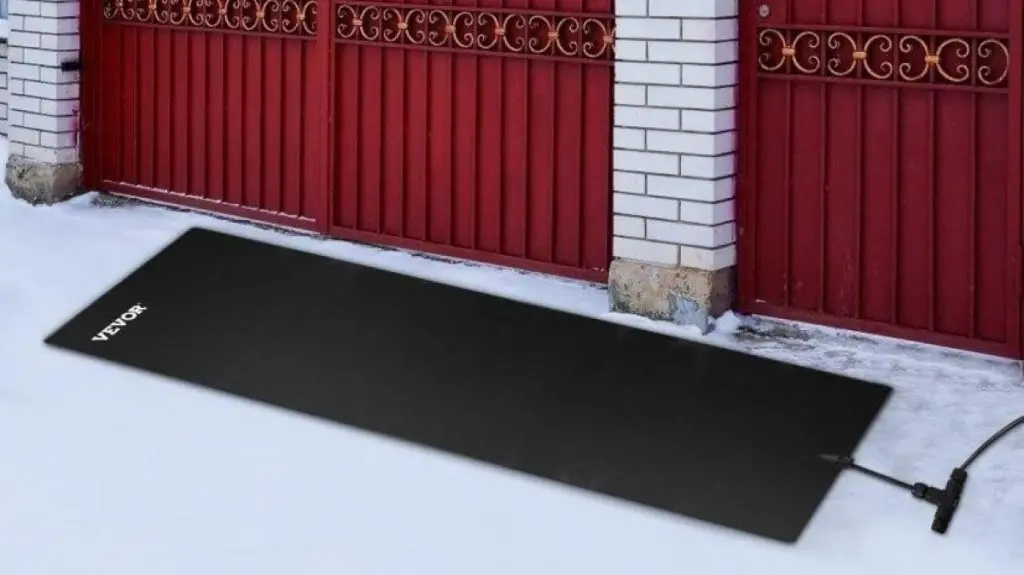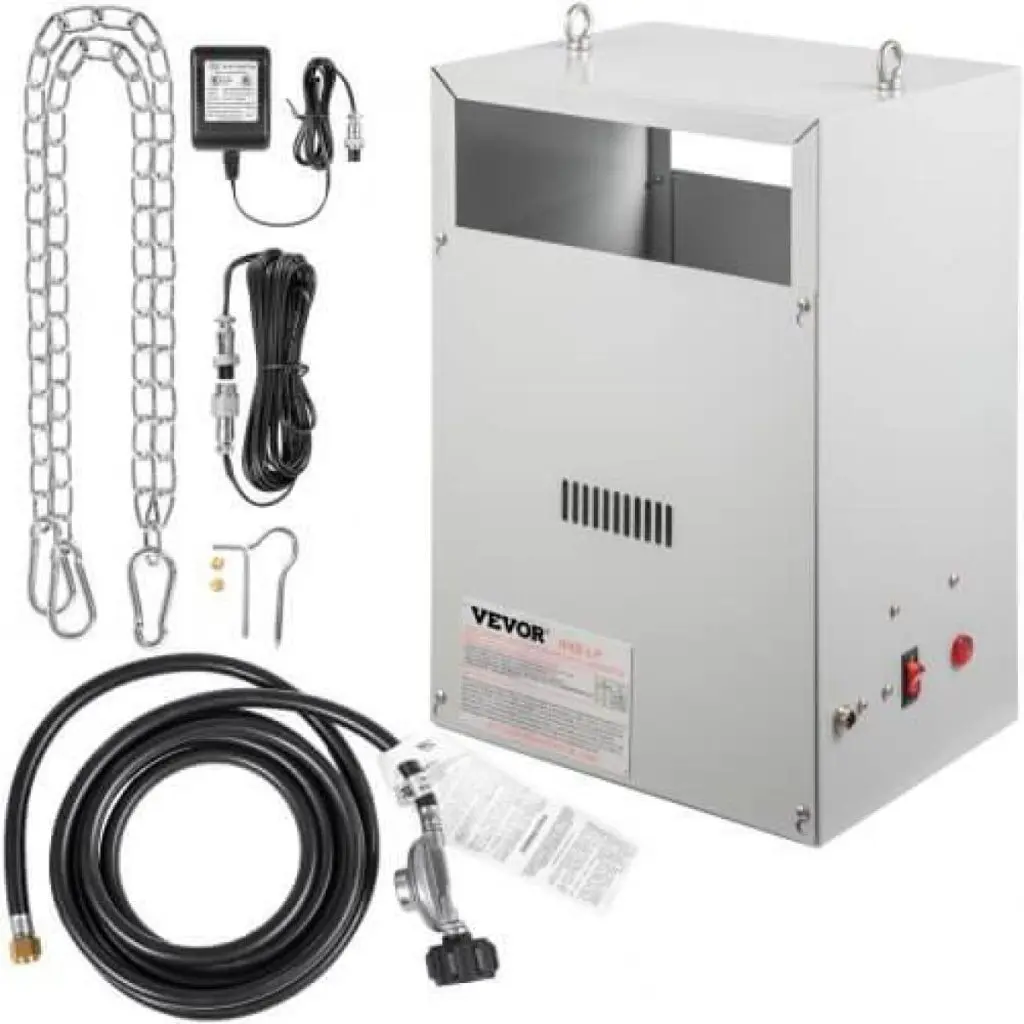Introduction
Power washers are daily use tools. Sometimes, you must clean up the floor or remove the debris from your lawns. They show their skills in cleaning points. Unfortunately, most people use the wrong pressure washer gas type and complain about decreased performance and short lifespan.
If you want to prolong the life of your pressure washer, think of its working science and use the correct type of gas for power washer. But what gas to use for pressure washer? Which one is the best? We will discuss different types of gas for pressure washers and their detailed overviews.
Table of contents
- Introduction
- Part 1: Why Is It Necessary To Use The Right Pressure Washer Gas Type?
- Part 2: Types Of Gas for Pressure Washer
- Part 3: How To Keep Fuel Problems Away?
- Part 4: Tips To Store Pressure Washer
- Part 5: 8 Safety Tips To Know When Using Pressure Washer
- Part 6: Frequently Asked Questions about Type Of Gas For Pressure Washer
- Conclusion
Part 1: Why Is It Necessary To Use The Right Pressure Washer Gas Type?
Right pressure washer gas type is crucial; otherwise, you must face serious consequences. There might be low engine performance or decreased life. Let’s find out various reasons supporting the right power washer fuel.
High engine performance
The engine is the fundamental machinery that empowers the pressure washer. Each engine requires a specific fuel type; for example, a pressure washer needs unleaded fuel.
If you use other types of fuels instead of compatible ones, the result is simple— decreased performance. You can’t expect better efficiency unless you deploy the correct type of gas for pressure washer.

Engine lifespan
It is not the decrease in efficiency only with the wrong fuel types. Instead, feeding the incorrect fuels quickly deteriorates the engine parts. They can’t perform with optimal results. Sooner or later, they end up in destruction. That is another significant disadvantage of imposing new costs for engine replacement.
Safety
This very potential issue you can come across is your safety, but it gets compromised now. With incorrect fuel, explosions or fire cases are expected. For instance, using a higher octane fuel than recommended can blow up the engine. It sometimes injures you. Therefore, consider the pressure washer fuel guidelines and follow them.
Warranty
If you haven’t followed the instructions from your pressure washer brand, don’t expect the endorsement. Every tool warranty ensures you follow all the rules. Using the wrong fuel type voids your warranty period and is problematic for cost reimbursements. Think and follow the instructions on the warranty card.
Environmental Impacts
If you are an active environmentalist using the wrong fuel type, there is bad news for you! You are not just hurting yourself but also the environment. Engine releases toxic cases that can end up causing air pollution, which is a severe concern for you.
Part 2: Types Of Gas for Pressure Washer
Whatever pressure washer you choose, it needs some types of fuels. Gas pressure washers need the different types of gas as fuels. There are two critical types of gas.
Unleaded Gasoline
What is it?
Unleaded gasoline is one of the potential matches for the pressure washer. The best part about unleaded gasoline is that it is lead-free fuel that boosts your engine performance and avoids toxic impacts on your health.
How does it work?
The frame of the working mechanism of unleaded gasoline is as:
- Combustion. In this chamber, gasoline mixes with the air.
- Compression. A piston increases the pressure of air and gasoline with compression.
- Ignition. Burning of the air and gas mixture occurs rapidly in this ignition process.
- Expansion. Combustion produces mechanical energy.
- Power generation. The system feeds this mechanical energy to pumps and causes high-pressure fluid, leading to optimal cleaning.
Pros
Gasoline came up with a bed of roses for the engine. Here are a few key benefits of using it as your power washer fuel type.
- Less environmental pollution. Tetraethyl lead pollutes the air and causes several impacts. Unleaded gasoline does not release the lead, keeping the environment safe.
- Better Health Safety. Lead is one of the most toxic elements for human health. It can cause cancers and blood-related issues. Using unleaded fuels keeps you safe from the poisonous impacts of the lead.
- Compatible. The pressure washer does not accept ethanol-mixed gasoline as an alternative. Even you can’t try the diesel. What option you have is the gasoline, and it is perfectly compatible with your system and aligns with the better performance.
- High engine performance. Unleaded gasoline provides better ignition compared to other gases. Moreover, it boosts the engine efficiency. Therefore, you run your pressure washers for extended durations.
Non-ethanol gas
Some engines accept both types of gases: gasoline, gasoline mixed with 10% ethanol, and non-ethanol gasoline.
Is it a good alternative?
Yes. Non-ethanol gasoline is an excellent alternative as a fuel compared to ethanol-mixed gasoline. It prevents the severe cases in which ethanol causes damage to your engines.
When should I use it?
There can be the following reasons for its use.
- Better storage. It has a long shelf life and is more of a gas stabilizer for pure unleaded gasoline.
- No toxic impact. Compared to ethanol-based gasoline, it does not rust or downgrade engine performance.
- Best performance. It boosts engine performance and can turn out to be the best alternative.
Which one is the best gas for the gas pressure washer?
Unleaded gasoline with an octane rating of 87 is the best option. You can try the higher ratings of 88, 89, or 93. Make sure the manufacturer has allowed its use in the manual. If there are risks of engine corrosion or quick damage, you can also rely on non-ethanol gas.
Part 3: How To Keep Fuel Problems Away?
Power washer fuel-related issues raise severe concerns. You have to recheck the cases and follow the below tips for better engine results.
Deploy Fresh Fuel
It is not just the wrong power washer fuel type but also old gasoline. It can also deteriorate your engine. Therefore, confirm whether the gas you use is fresh or not. Replace the old gasoline with the new ones.
Octane Rating must be accurate
Both high and low octane ratings are a problem. Usually, a pressure washer 4400 PSI needs an octane rating of 87. But confirm it on the washed manuals and know whether it requires a higher rating. Avoid using the wrong octane type; otherwise, the engine might not give 100% performance.
Don’t use ethanol
Not all pressure washers allow the use of gasoline mixed with ethanol. Go through the manufacturer’s instructions. Either use a pure gasoline fuel or consider the given proportion of mixed ethanol in the gasoline.
Clean Fuel System
Dust and debris are a complete topic of discussion. They clog the fuel filters and decrease the engine performance. You have to inspect your fuel system and clear up all the clogs. Also, monitor the filters and immediately clean all the debris.
Utilize Fuel Stabilizers
Fuel stabilizers work out only if you do not have to use your pressure washer for extended periods. It prevents the gas from causing damage to your engines and ensures better performance once you use your washers again. But read the instructions of the manufacturers in this case.
Recommended For Your Project
Part 4: Tips To Store Pressure Washer
Cleaning a pressure washer is a hassle-free task. You’ll indeed enjoy its charms and store it for extended periods. Here are some steps you should follow for storage of your pressure.
Sort out the soap
The first step is to remove the soap from the pressure washer. You can separate the pipe that supplies the soap. Turn on your pressure washer and pass the water through it. High-pressure water will remove the leftover soap in the pipe. Confirm if there is any soap still there.
Turn off the machine
Once your pipe is clean from soap, turn off your pressure washer. Point its nozzle downward so that water gets removed from it. Keep it so until the last drop of water falls off the pipe.
Lock trigger
Trigger is a crucial part of your pressure washer controlling the systemic pressure. Don’t damage the trigger. Therefore, lock it and check whether it shows some signs of damage. Now, let the machine cool down.
Remove Hose connections
You need to remove the following hose connections for your cleaning and storage.
- Remove the water hose.
- Separate the water gun from the machine.
- Eliminate the wand extender and high-pressure hoses from the machine.
It is not just that simple. Do all the tasks carefully, ensuring the tools’ best safety. After removal, try again for the water content removal. You can point in the downward direction and remove all the water in them.
Take The Machine for storage
Let’s get ready for the storage of your machine. Here are some steps to follow to store all the tools safely.
- If there is any residual water left in the pipe, remove it.
- Clear the whole water supply system. Recheck all the components and secure the water removal.
- Clean the inside and outside with a brush.
Now, you can safely store your pressure washer in the garage or storeroom wherever you want to.

Part 5: 8 Safety Tips To Know When Using Pressure Washer
When using pressure washers, consider the location and space, and follow the tips below for your safety.
- Don’t turn on your pressure washer inside a building. Why? Because it releases toxic carbon monoxide that is a silent killer.
- Ensure the storage at room temperature. Avoid using your pressure at freezing temperatures or highly low-temperature conditions.
- Cool down your pressure washer before cleaning it. Otherwise, a hot burning washer can burn down your skin.
- Avoid targeting someone for fun. High-pressure water can cause severe injuries to your friends or family members if you target the pressure on them.
- Wear the eyeglasses for protection from dust or concrete particles that might spread out due to pressure washing.
- Maintain your pressure washer for extended use.
- Never use a pressure washer on ladders as it may cause loss of balance and ultimate injury.
- Shun from trying to move objects with a pressure washer as it can blow them. In turn, your objects get damaged.

Part 6: Frequently Asked Questions about Type Of Gas For Pressure Washer
How Much Gas Is Needed For A Pressure Washer?
It depends more on the capacity of your pressure washers. For instance, a 3200 PSI pressure washer can hold up to half-gallon gas. Large pressure washers have more tank capacity. Depending on your tank capacity, you can use the gas.
Can I Use Non-Ethanol Gas In A Pressure Washer?
Yes. You can use non-ethanol gas in a pressure washer. Almost all pressure washers support non-ethanol gas for long-term storage options. First, confirm it from your manufacturer, then think of using it.
What happens if you input the wrong gas?
It can cause the following issues.
- Reduce the lifespan of your pressures.
- Deteriorate engine performance and internal structures.
- It may cause accidents like fire or explosion.
Can you use mixed gas in a pressure washer?
Technically, some pressure washers support the use of mixed gas. But you should try it only when the manufacturer has mentioned it in the manuals. If your pressure washer doesn’t allow its use, don’t even attempt it.
Conclusion
Whenever you are using the pressure washer, read the manual. Consider the manufacturers’ recommendations and use the correct type of gas for the pressure washer. To enhance performance and life, maintain your pressure washer and clean it.
If you want to buy a quality pressure washer, VEVOR is your guide. We have almost all types of versatile and affordable pressure washers. Grab the opportunity!





